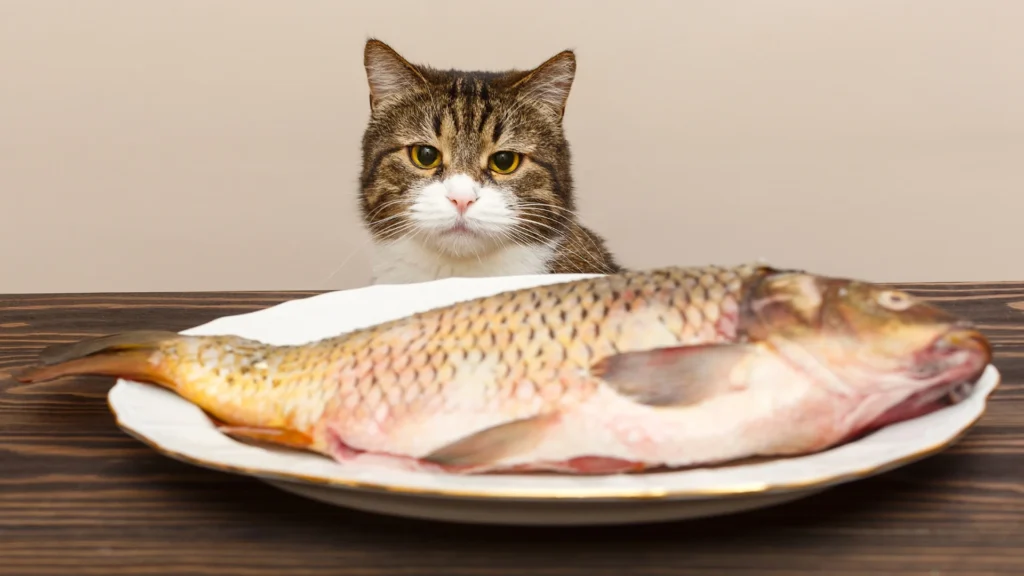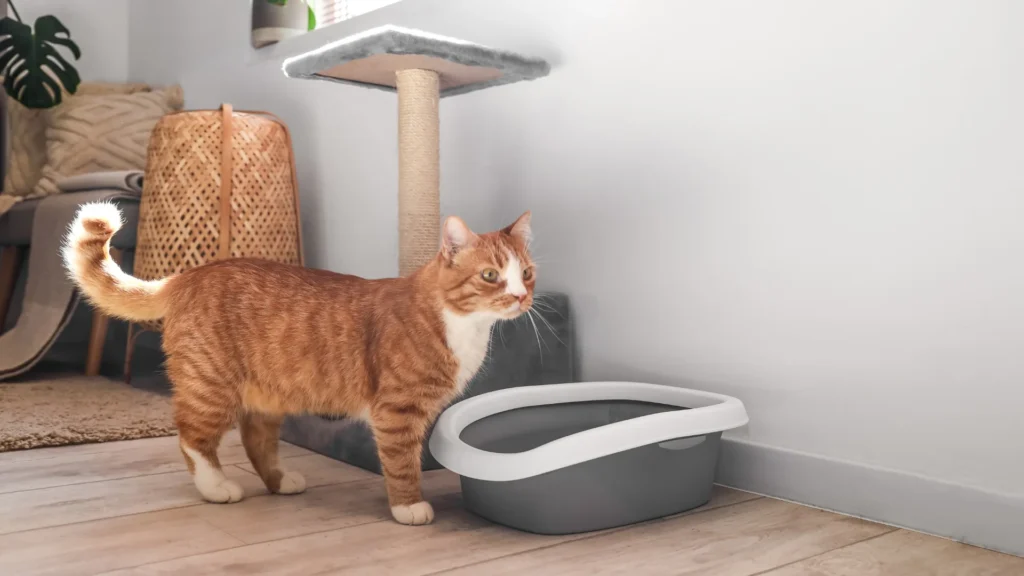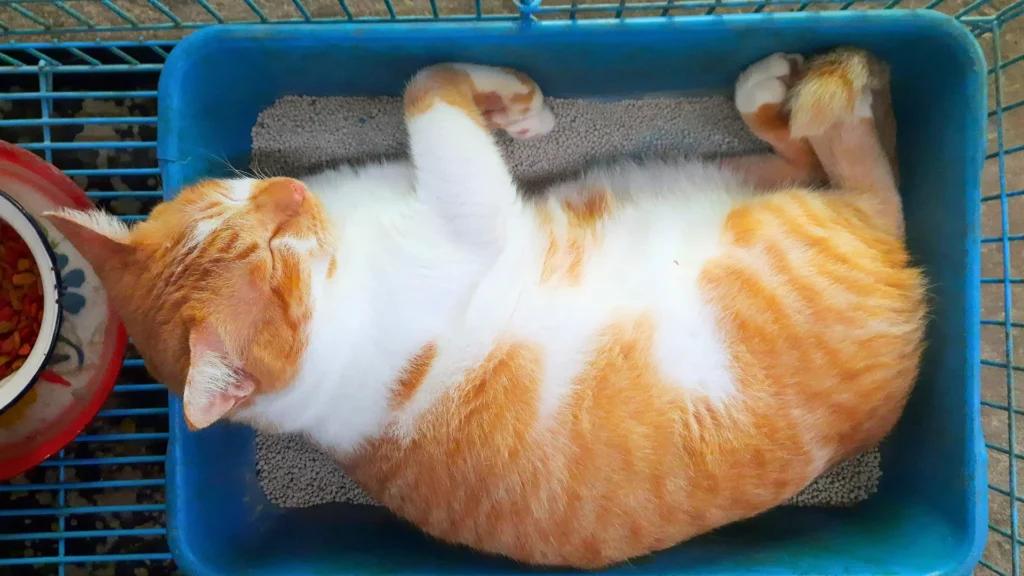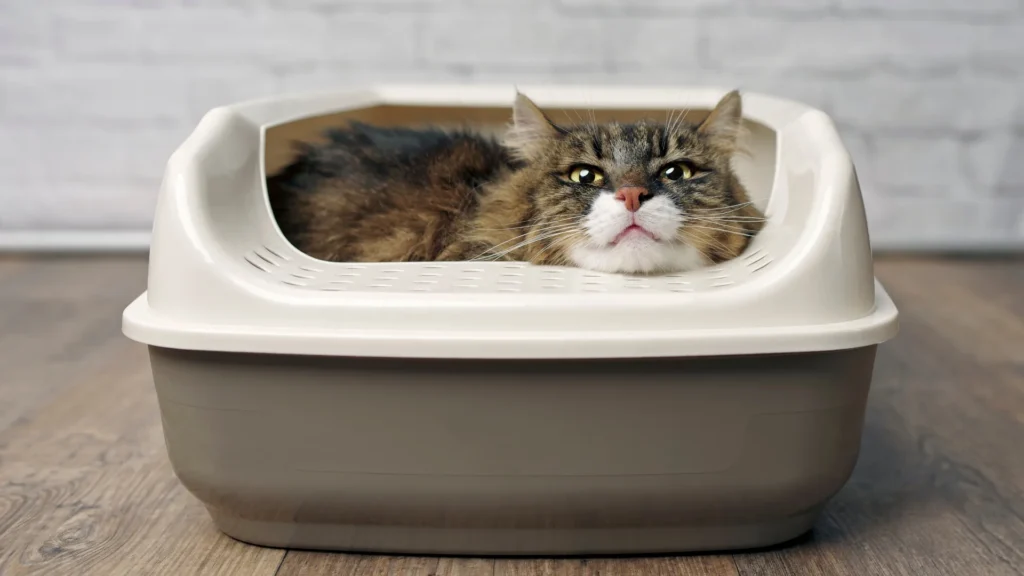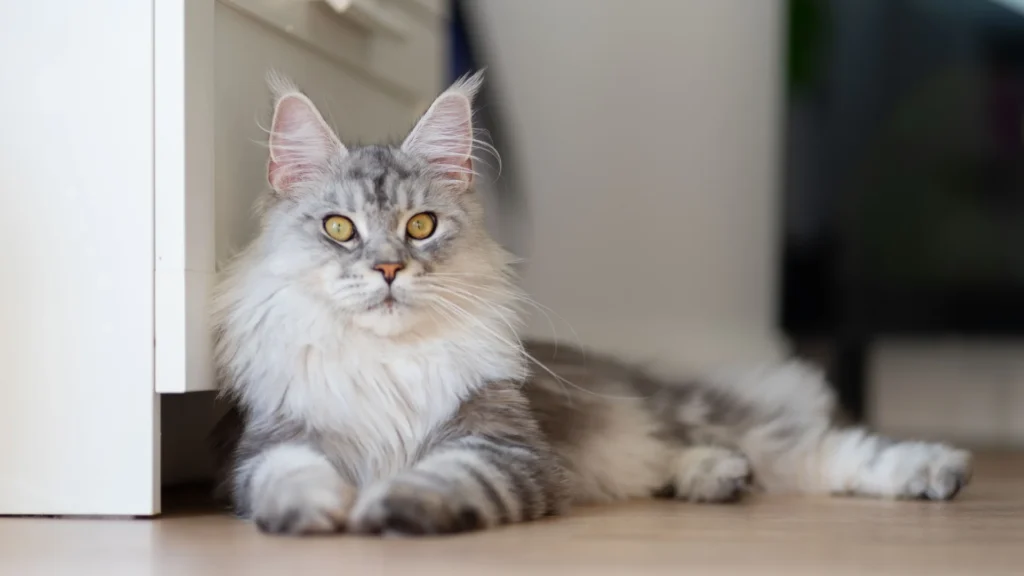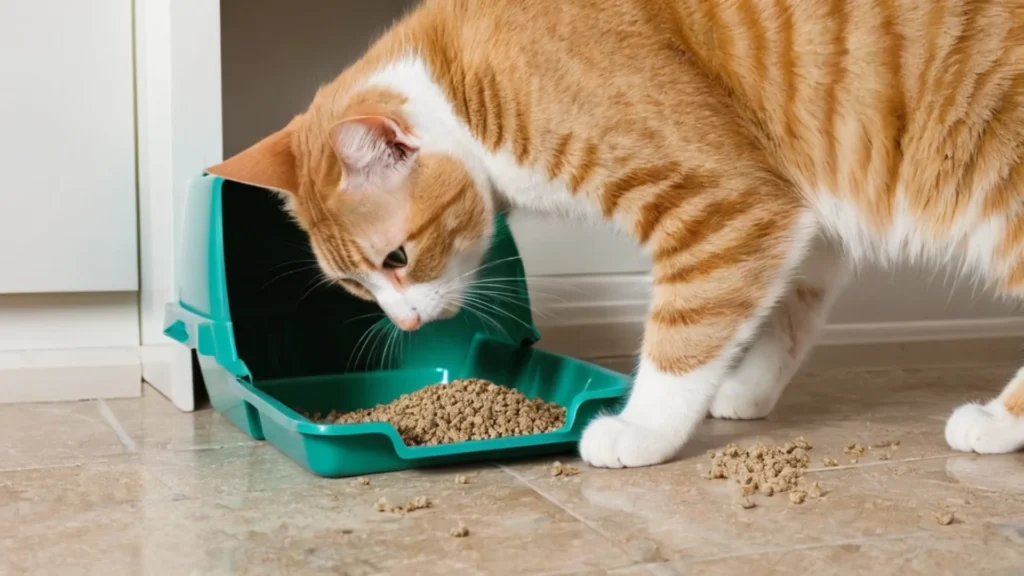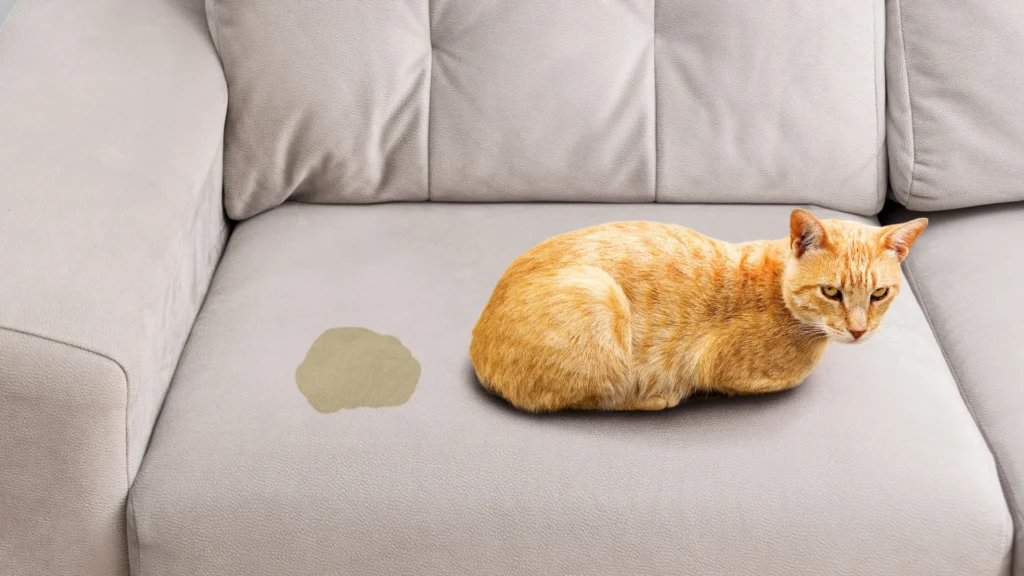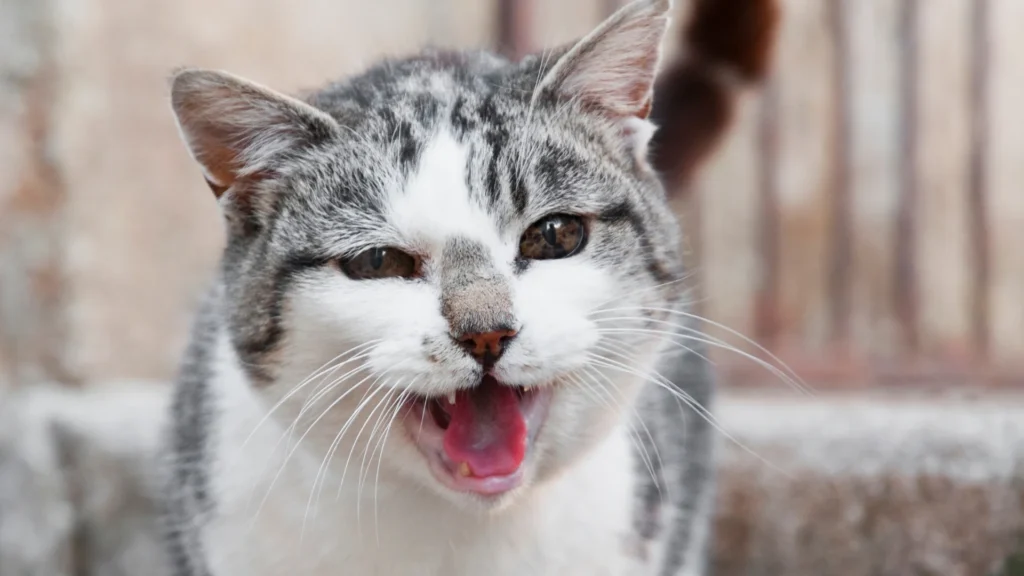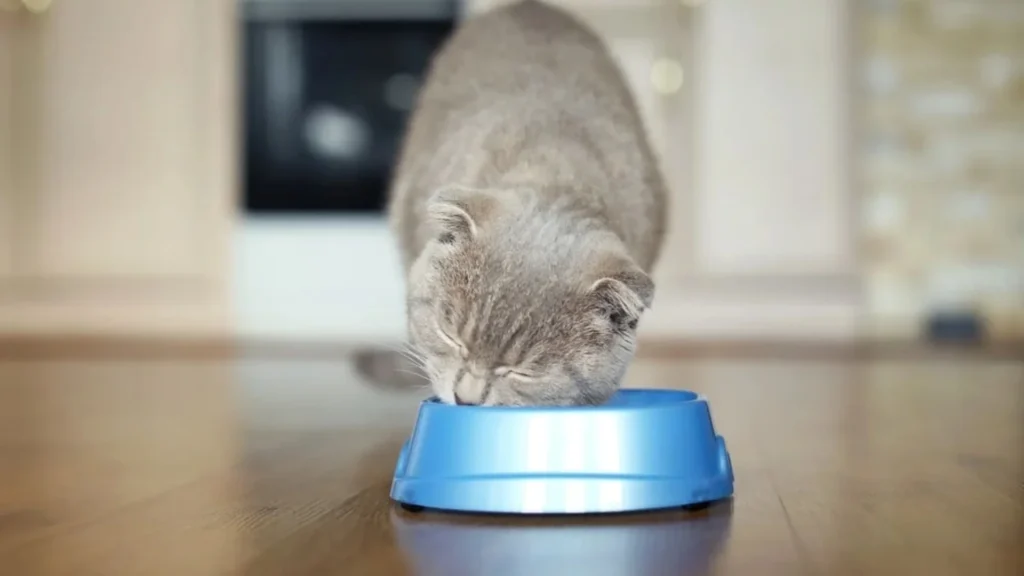Table of Contents
Cats really love fish, and there’s more to this love than just taste. The smell of fish alone can grab a cat’s attention and make them excited. When it comes to their meals, fish offers cats lots of good things like important nutrients.
Tuna, salmon, and other fish are not just yummy for them but also help keep them healthy. This article looks into why cats are so fond of fish, talking about both why they like its taste and how it’s good for their diet.
Why do Cats Love Fish?
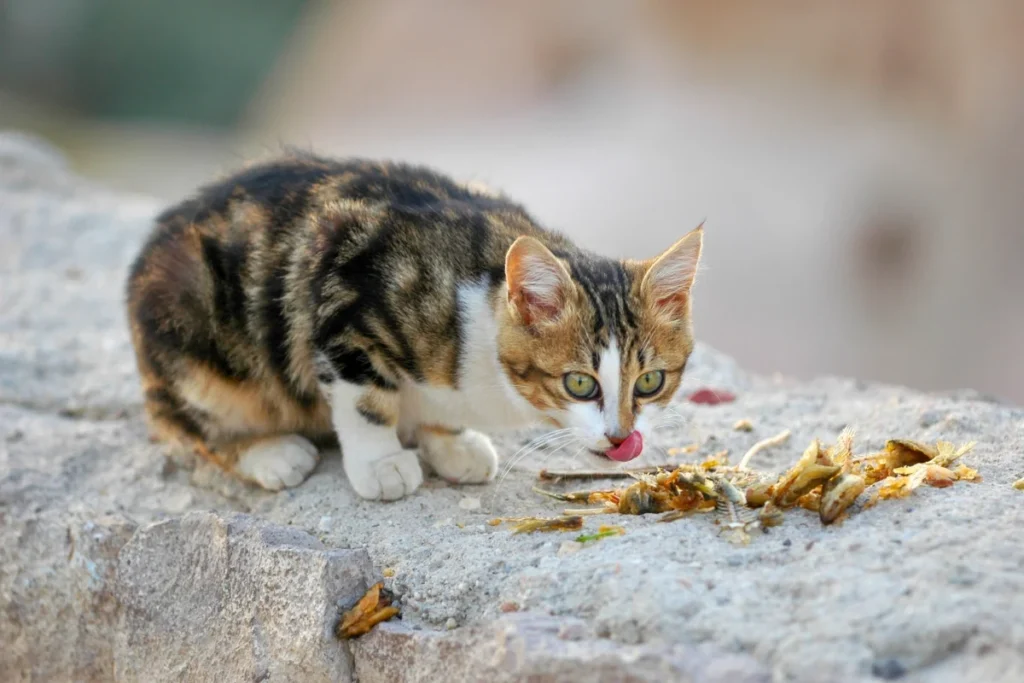
Cats have a natural appetite for fish, and this is evident when they smell catfish. They can’t resist the smell of fish, making it a popular choice in cat food. When cats eat fish, especially tuna and salmon, they don’t just enjoy it; they consume essential nutrients.
In nature, cats like to eat fish because it is a spontaneous decision. Domestic cats like to eat fish for the same reason. Even though they are natural carnivores, fish for cats provide more than just protein. It contains many nutritional benefits like omega-3 fatty acids and amino acids like taurine, which are important for their health.
Types of Fish Cats Like to Eat
It is important to provide fish in moderate amounts to maintain a balanced diet. Canned tuna may be a convenient option, but fresh or thoroughly cooked fish is often healthier for your feline friend.
Cats Love Fish: Find the Best Fish for Your Cat's Diet
Cats have an innate appetite for fish, which is often depicted in popular culture and observed in homes around the world.
Tuna
Tuna is a top favorite for cats because of its yummy aroma and taste, but be careful not to overfeed them. While it has good nutrients like omega-3 fatty acids, it shouldn’t be their main food because it can have too much mercury and not enough balance for their diet.
Salmon
Nutritious and delicious Salmon, a type of fatty fish, is also great for cats.Salmon is rich in omega-3 fatty acids and protein, which support a healthy coat and overall health.Cooked salmon is a safer choice than raw salmon because it eliminates the risk of parasites such as Salmonella. Salmon should supplement a balanced diet.
Sardines
Sardines are tiny fish high in critical nutrients.It contains high levels of omega-3 fatty acids and vitamin E, which are beneficial to your cat’s health. Sardines can be eaten cooked or canned, but avoid those with extra salt or seasoning. Sardines, like all other fish, should be included in a well-balanced diet.
Mackerel
Mackerel is a healthy option for cats, with a balanced blend of vitamins and minerals. To avoid health hazards, go for fried mackerel over raw. Its powerful odor can lure even finicky eaters as a delightful snack.
White Fish
Cod and haddock, white fish, are gentle on sensitive cat stomachs due to their low fat and easy digestion. Remember to cook them well and offer them in moderation for a balanced cat diet.
Does Fish Form a Healthy Diet for Cats?
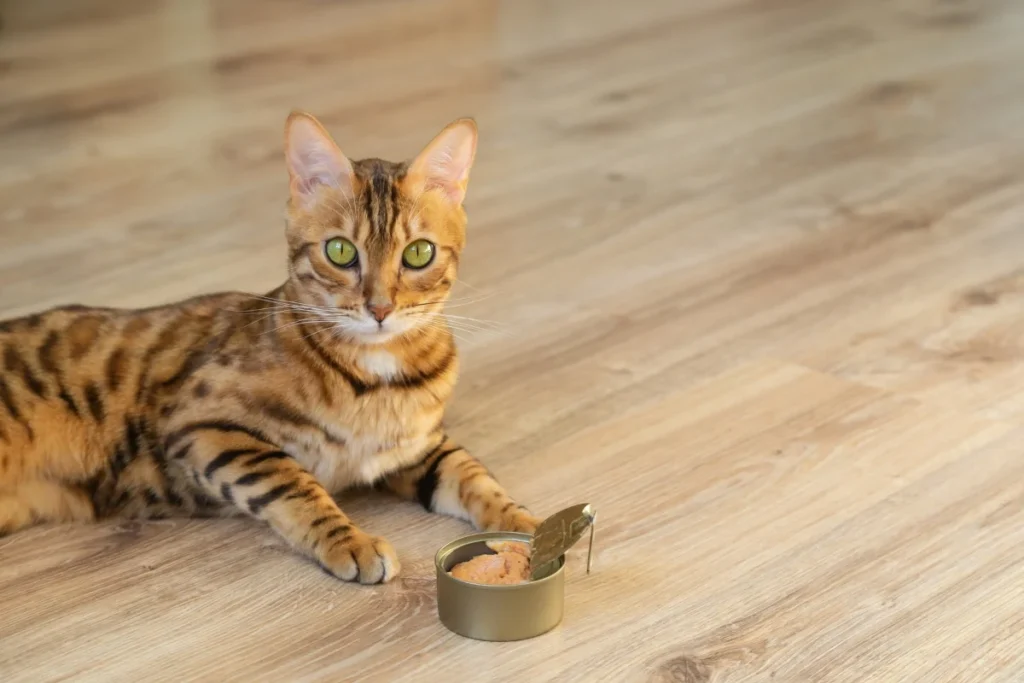
While many cats have a strong attraction to fish, it is crucial to remember that it should only be part of a balanced diet. Fish can give critical nutrients like as omega-3 fatty acids, which are good for your cat’s skin and coat.
However, feeding only on fish can lead to nutritional inadequacies and health problems, such as a lack of important amino acids like taurine and an increased risk of mercury poisoning.
It is advisable to serve fish as an occasional treat rather than as the primary component of their diet. Always consult your veterinarian to create a diet that is customized to your cat’s individual needs, resulting in a healthy and happy feline friend.
Choosing the Right Fish for Your Feline Friend
When picking fish for your purring pal, think about variety and moderation. Not all fish are equal in the eyes (or taste buds!) of your cat. Go for options low in mercury like salmon or sardines, which are packed with healthy omega-3s.
Remember, cooking is safer than raw to avoid harmful bacteria. And always, a little fish goes a long way it should be a treat, not the main meal. Your vet can guide you on the best fishy choices for your cat’s unique needs
Concerns About Feeding Fish to Cats
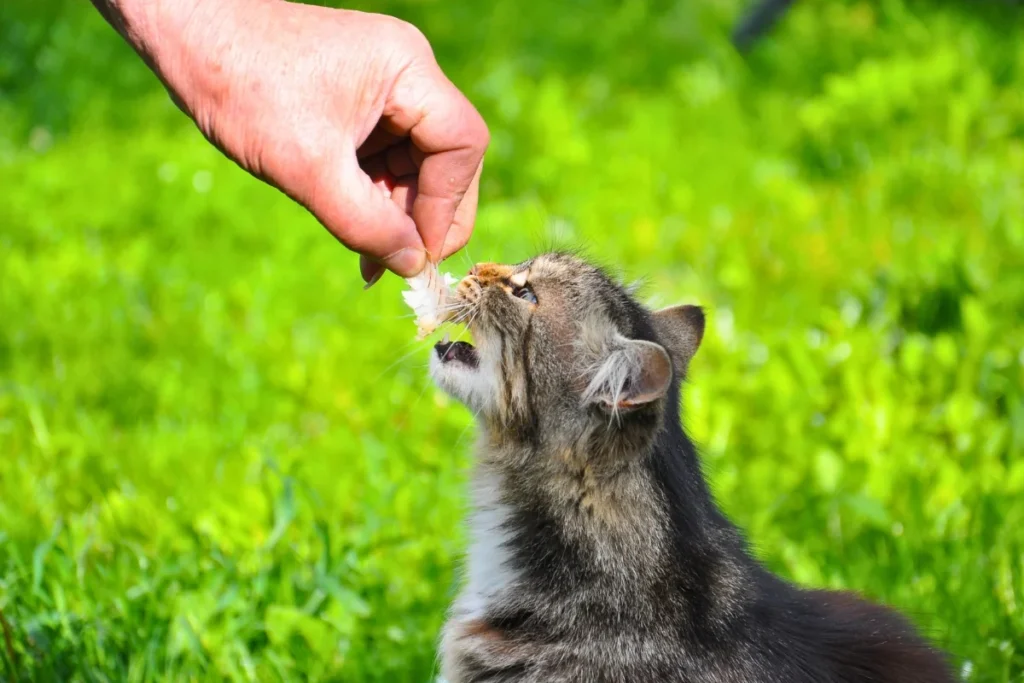
While fish can be a tasty treat for your cat, there are some concerns to consider. Frequent fish meals can lead to nutrient imbalances, especially if it’s replacing a complete cat diet.
Watch out for high-mercury fish like tuna, which can be harmful in excess. Also, raw fish can carry bacteria and parasites, posing health risks. And remember, some cats may develop allergies to fish. It’s best to consult your vet and offer fish as an occasional treat, ensuring your kitty stays healthy and happy.
Frequently Asked Question
Cats are naturally attracted to the strong smell and taste of fish. It’s an instinctual preference that comes from their wild ancestors who relied on fish as a food source.
Feeding your cat fish every day is not recommended. While they enjoy it, too much fish can lead to nutritional imbalances. It’s best to offer fish as an occasional treat.
Raw fish can carry harmful bacteria and parasites. It’s safer to cook the fish thoroughly before feeding it to your cat to avoid health risks.
Fish like salmon and sardines are better choices for cats as they are rich in omega-3 fatty acids and lower in mercury. However, always serve fish in moderation.
Yes, some cats can develop allergies to fish. If you notice any signs of an allergic reaction, like vomiting or skin issues, consult your veterinarian.
Fish alone doesn’t provide all the necessary nutrients cats need, like taurine. Relying solely on fish can lead to nutritional deficiencies.
Conclusion
Cats’ natural love of fish is generated by its appealing smell and taste, and fish such as tuna, salmon, sardines, mackerel and whitefish provide essential nutrients for cats.
However, it is essential to consume fish in moderation as part of a balanced diet to avoid potential problems such as mercury risks and nutritional imbalances. You should consult your veterinarian for a suitable diet, ensuring that regular consumption of fish, raw fish, and fish with high mercury content is used with caution to prevent Maintain your cat’s health and happiness, while watching for signs of allergies or health problems, learn why cats shake their head when they eat.

